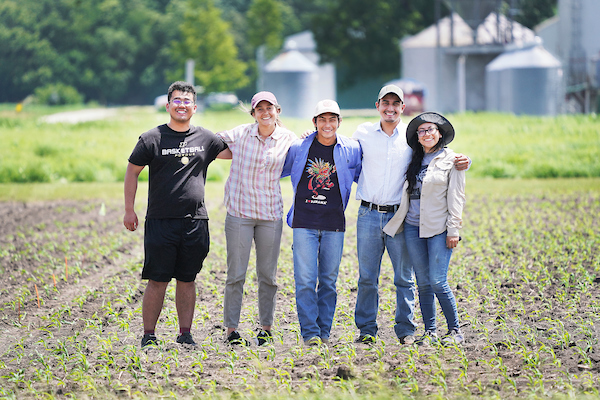
MAJORS

Learn problem solving skills and strategies that you can apply to modern agriculture and the food industry.
Concentrations include Agribusiness Management, Agrifinance, Agrimarketing, Commodity Marketing and Food Marketing.

Put economic principles into practice and analyze issues related to price analysis, international trade and development, environmental resources and agricultural policy.
Concentrations include Applied Agricultural Economics, Quantitative Data Analytics, and Policy and Pre-Law.

Combine your interest in animals, plants, natural resources, and food with your desire to educate the next generation & make a difference in your world.

Apply engineering principles with your knowledge of agricultural systems and natural resources to assure environmental compatibility of practices used by production agriculture.

Learn how equipment and buildings are used with plants and animals and their products.
Concentrations include Data and Information Systems, Leadership and Management, and Agro-security.

Meet the global need for food, fuel and fiber while addressing environmental sustainability challenges. Be a part of enhancing the quality of life through discovery, education and engagement.
Concentrations include Agronomic Business and Marketing, Crop and Soil Management, and International Agronomy.
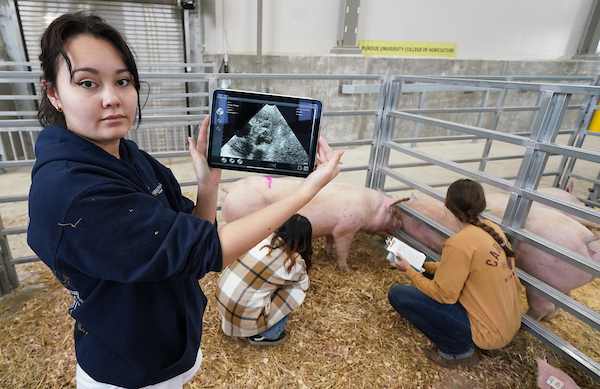
Turn your passion for animals into a career in animal agriculture or prepare for graduate school through hands-on experience.
Concentrations include Animal Agribusiness, Behavior/Wellbeing, Biosciences, Pre-veterinary Medicine, Animal Production and Industry.
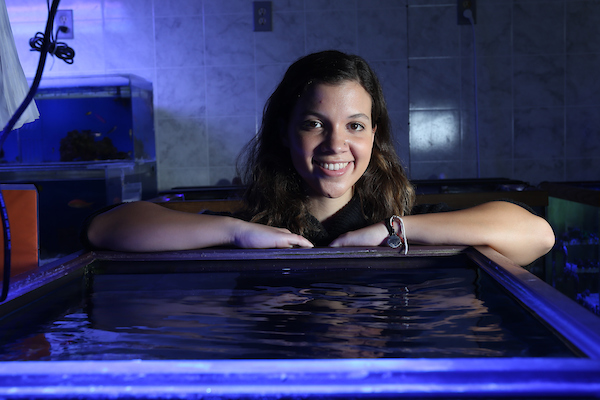
Prepare for a career in research, management, education or interdisciplinary investigations of environmental programs in freshwater or marine ecosystems.
Concentrations include Fisheries and Marine and Freshwater Biology.
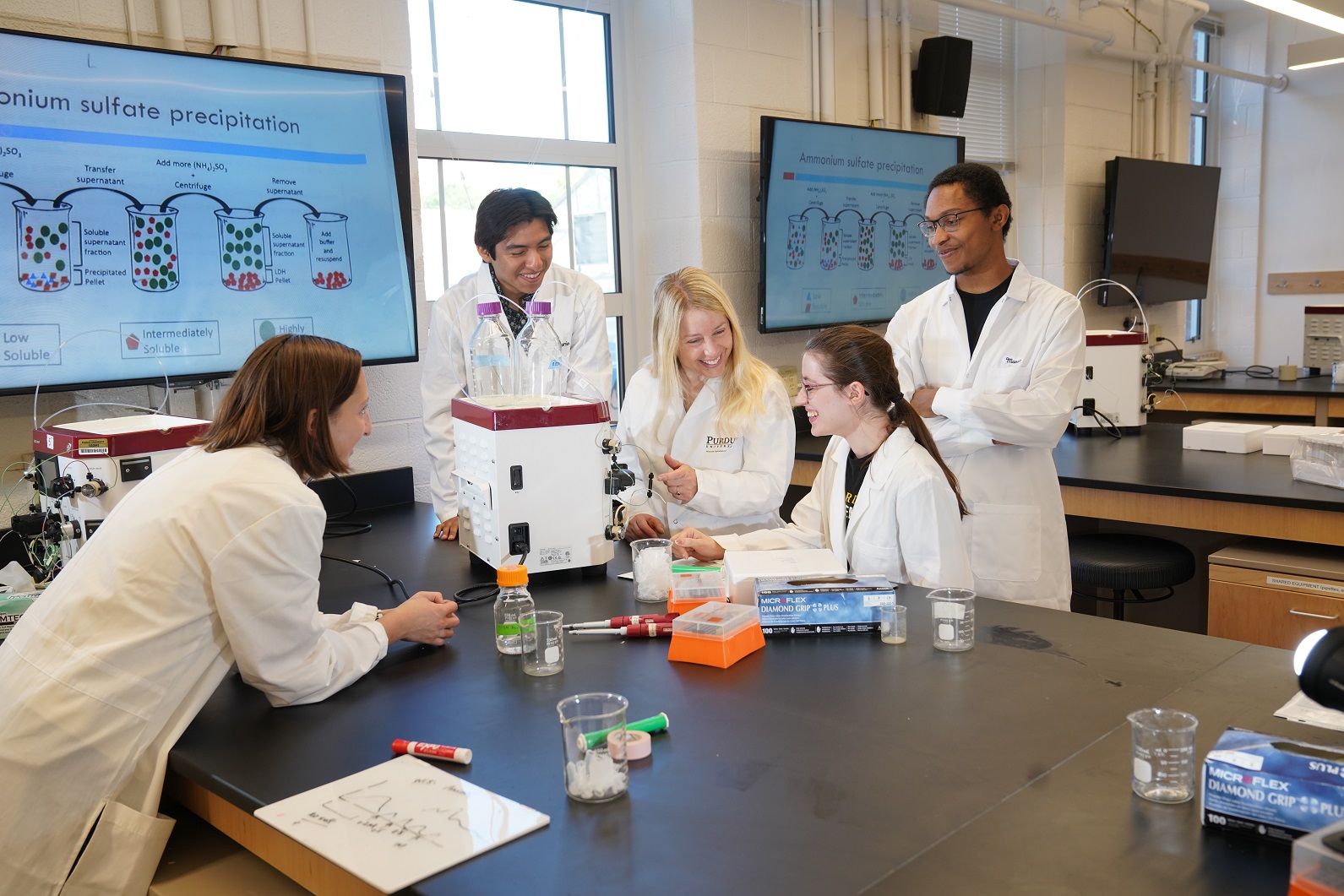
Study the driving force behind applications ranging from cancer research to biofuel production to antibiotic discovery.
Concentrations include Pre-Med and Pre-Vet.

Solve challenges for pharmaceuticals, food production or bio-technology in a program where you’ll experience deep ties to the College of Agriculture and College of Engineering.
Concentrations include Bioenvironmental Engineering, Cellular & Biomolecular Engineering, Food & Biological Process Engineering, and Pharmaceutical Process Engineering.
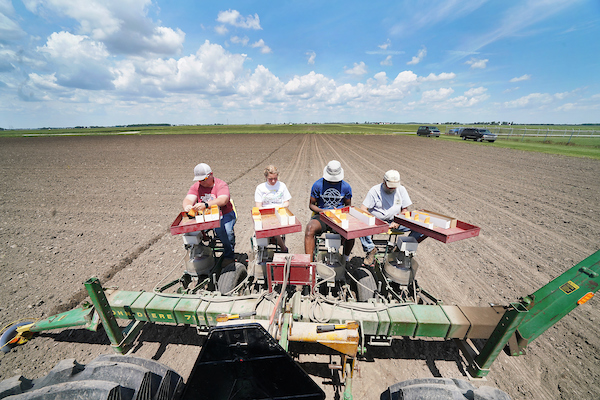
Gain a well-rounded understanding of basic sciences with applications in crop plant management and crop improvement.
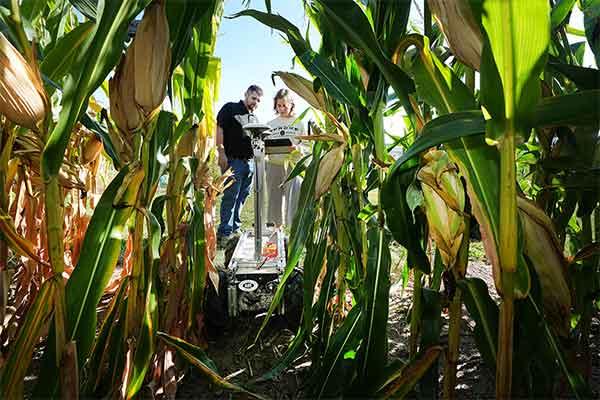
Learn how to develop a broad, big picture view of how farmers can use digital tools to get things done.
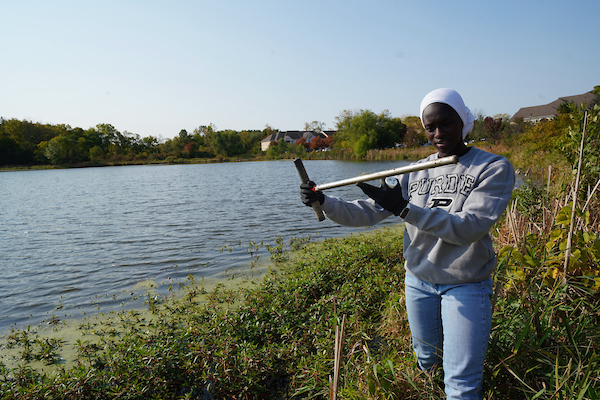
Learn about ecosystem processes and how humans affect these systems to design sustainable solutions.

Prepare to manage the home farm or a career in professional farm management with an emphasis on production, finance, marketing and management strategies.
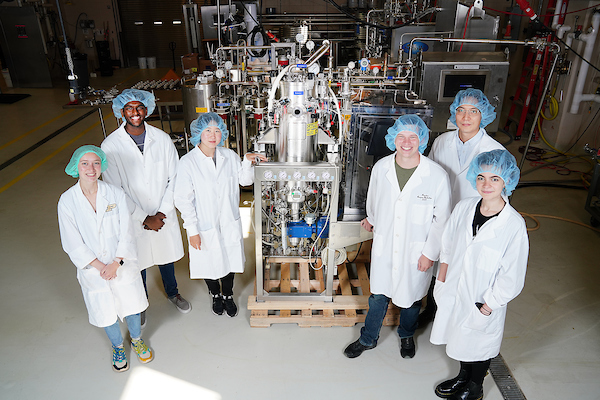
Discover ways to design and use microbes in varied industries from foods to biofuels to pharmaceuticals to sustainably solve challenges.
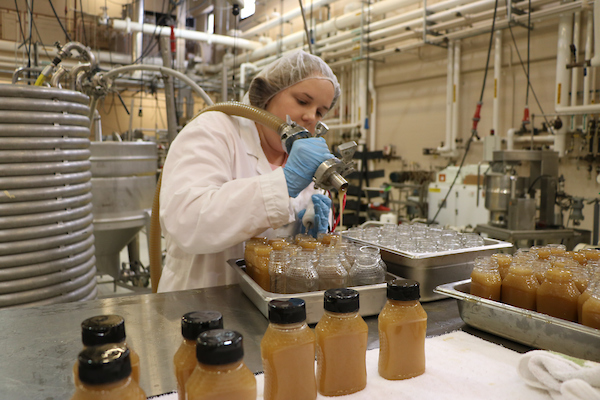
Apply science, such as microbiology and biochemistry, to discover ways to improve the taste, nutrition and value of the food supply.

Learn to apply biological, ecological, economic and social knowledge to develop and administer forest management plans on public and private forestlands and urban settings.
Concentrations include Forest Management, Forest Science, Sustainable Biomaterials and Urban Forestry.
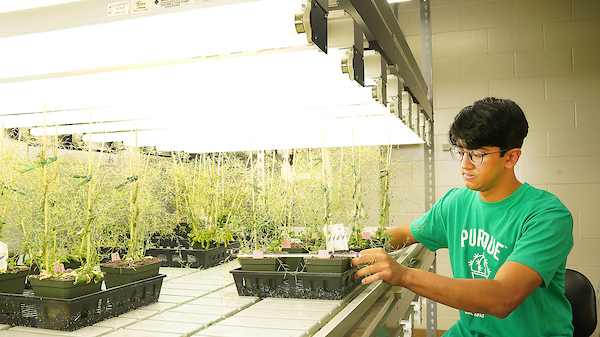
Apply knowledge from biology, chemistry, ecology, engineering, communications, business and education to solve real-world problems related to the production, marketing and management of landscape plants, flowers, fruits and vegetables.
Concentrations include Horticultural Production and Marketing, Landscape Contracting and Management, Landscape Design, Landscape Enterprise Management, Plant Science and Public Horticulture.
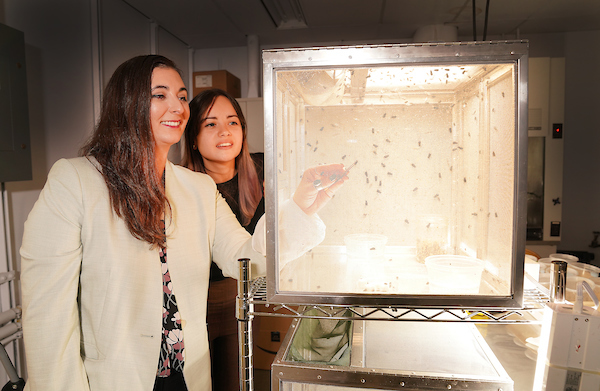
Protect human and animal health, food, property and natural environments by understanding the biology and ecology of insects.

Develop abilities in problem solving, analytical thinking and communication to design parks, retail environments, corporate campuses or even new communities.
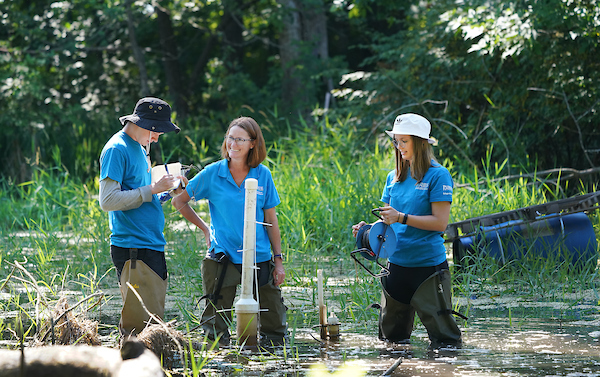
Contribute to environmental change in the world.
Concentrations include Climate and Energy Solutions, Emerging Environmental Challenges, Environmental Policy and Analysis, Environmental Quality and Restoration, Sustainability Science, and Watershed Management.
Explore Natural Resources and Environmental Science
Study the interactions of plants with other organisms and their role in the environment to learn how plants and microbes grow, develop, and evolve.

Are you interested in a career that involves studying plants, but aren't sure which of our majors best suits your personal interests? Start here.
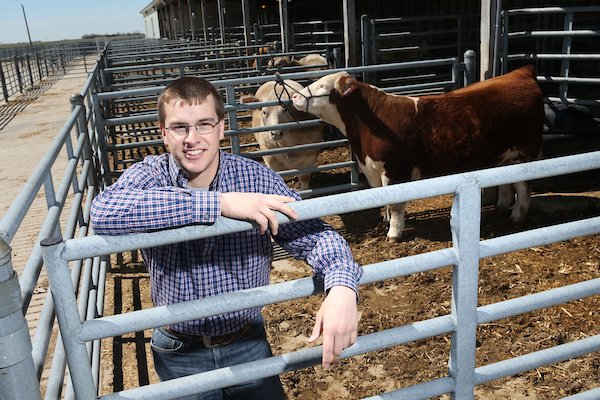
Considering a career as a veterinarian but aren't sure which academic major is your best fit? Start with this non-degree program.

Develop an area of specialization to prepare for entry into an agricultural-related industry of choice.
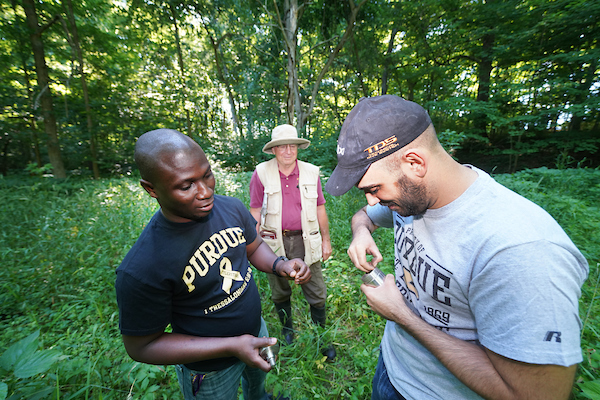
Address agricultural water use, food security, soil and water quality and secure water supplies by gaining a strong science education.
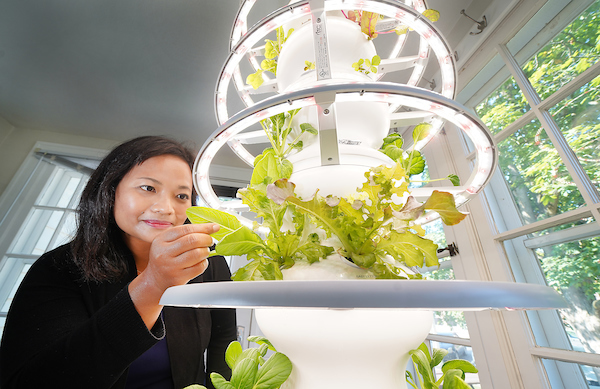
Learn how to design and manage a small farm enterprise by studying the principles of sustainable agriculture.
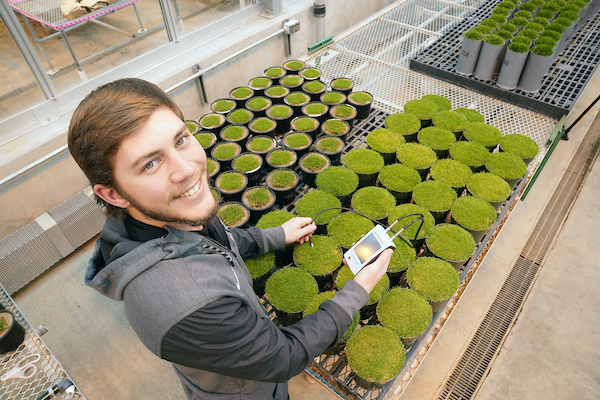
Oversee and implement management programs for the production, maintenance and performance of turfgrass areas like golf courses, athletic fields, parks, lawns and sod farms.

Learn about wildlife research, management and education with an emphasis on sustainable management of natural resources systems in the real world.
Contact Us
Office of Academic Programs
Agricultural Administration Building | Room 121
615 Mitch Daniels Blvd., West Lafayette, IN 47907
purdueag@purdue.edu | (765) 494-8470

